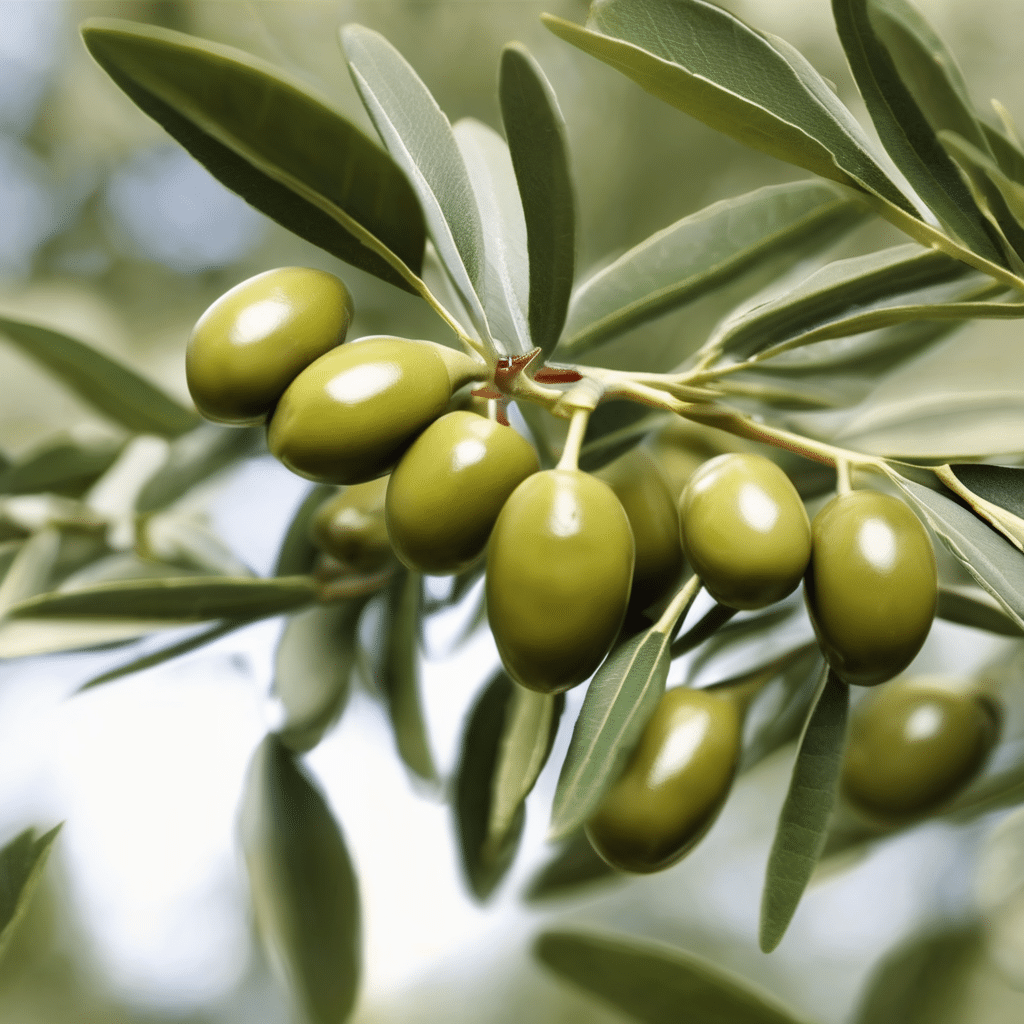
The #1 Type-2 Diabetes Management System
The #1 Type-2 Diabetes Management System is a highly effective solution for managing Type-2 Diabetes. Olive Leaf Extract for Diabetes has approval from leading institutions. Diabetes is a widespread chronic condition that affects millions of people worldwide. Olive leaf extract is a natural remedy that has gained much attention in recent years for its potential to help manage diabetes. Clinical studies and research findings have suggested that olive leaf extract has antioxidant properties, anti-inflammatory effects and may help regulate blood sugar levels, as well as improve insulin sensitivity.
Consumption of olive leaf tea, olive leaf capsules, olive leaf tincture and even raw olive leaves have been suggested as possible ways of taking the extract, although further scientific evidence needs to be assessed from health journals and diabetes research. It is believed to be particularly effective for type 2 diabetes, although dosage and daily intake should be carefully monitored. Furthermore, recommended consumption methods and side effects, as well as safety precautions when taking olive leaf extract, should be taken into consideration when using it as part of a natural therapeutic plan for diabetes.
Key Takeaways
- Olive leaf extract is a natural remedy that has antioxidant, anti-inflammatory, and blood sugar regulating properties. It has been studied for its potential benefits for diabetes, especially type-2.
- Research shows olive leaf extract may help lower blood glucose levels, improve insulin sensitivity, and reduce risk of complications in diabetes patients.
- Olive leaf extract can be consumed as olive leaf tea, olive leaf capsules, olive leaf tincture, or even eaten as raw olive leaves. Dosage varies based on form.
- While promising, more research is still needed on the efficacy and long-term safety of olive leaf extract. Consult a doctor before taking it.
- Start with low doses of olive leaf extract and monitor blood sugar levels closely if incorporating into diabetes treatment plan.
- Potential side effects include medication interactions, allergies, and digestive issues. Take precautions and consult a doctor on using olive leaf extract.
- Overall, olive leaf extract shows potential as a natural supplement to help manage type 2 diabetes symptoms when used carefully under medical supervision. More studies required for definitive guidance.
Overview of Olive Leaf Extract for Diabetes

Olive Leaf Extract has potential benefits for diabetes management. Olive Leaf Extract is a natural remedy and herbal supplement with numerous benefits. Utilizing the antioxidant properties of the raw olive leaves, it has been linked to blood sugar regulation, improved insulin sensitivity, and cardiovascular health. In the form of olive leaf tea, it can be enjoyed as a hot or cold beverage. Clinical studies and diabetes research have indicated that it may be beneficial for those with type 2 diabetes. It is important to adhere to the recommended dosage and safety precautions when taking this natural remedy.
Benefits of Olive Leaf Extract
The benefits of Olive Leaf Extract include its antioxidant properties, immune system support, and potential anti-inflammatory effects. Moving on from the discussion of olive leaf extract, let us explore the benefits of this natural remedy. Olive leaf extract is renowned for its antioxidant properties, which can be beneficial for cardiovascular health. Additionally, drinking olive leaf tea made from raw olive leaves has been linked to improvements in blood sugar regulation and insulin sensitivity, as well as positive clinical studies and diabetes research.
Olive leaf extract can be consumed in various forms, such as olive leaf capsules, olive leaf tincture, and olive leaf tea. Depending on the form of consumption, the recommended dosage can vary. However, it is important to remember to follow safety precautions and to consult with a doctor before taking any natural remedies or herbal supplements. Additionally, it is also recommended to review the available research findings and scientific evidence in health journals before taking olive leaf extract.

Types of Olive Leaf Extract
Olive leaf extract has various types available. Moving on from the benefits of Olive Leaf Extract, let’s look at the different forms it can take. Olive Leaf Extract is available in various forms, each with its own unique properties, and all boasting powerful antioxidant properties.
Raw olive leaves can be used to make tea, while olive leaf capsules and olive leaf tinctures are popular herbal supplements. Clinical studies have also investigated the potential of Olive Leaf Extract for cardiovascular health, diabetes research, and type 2 diabetes.
When it comes to recommended dosage and safety precautions, herbal supplements vary in potency and recommended daily intake. Therefore, it’s important to read the label and talk to your healthcare professional before taking any type of Olive Leaf Extract.
How Olive Leaf Extract Works
Olive leaf extract works by inhibiting the growth and replication of harmful microorganisms. Building on the numerous potential benefits of Olive Leaf Extract, it is important to understand exactly how it works. Olive Leaf Extract is a natural supplement derived from the olive tree and is renowned for its antioxidant properties. It is believed to support cardiovascular health, as well as manage blood sugar levels. Olive Leaf Extract is typically available in the form of an olive leaf tea, raw olive leaves, or as capsules and tinctures.
The potential health benefits of Olive Leaf Extract have been studied in numerous clinical studies, with particular focus on diabetes research. Research findings suggest that Olive Leaf Extract may be beneficial in type 2 diabetes management. Scientific evidence published in various health journals indicates that Olive Leaf Extract may also help reduce inflammation and oxidative stress, and improve insulin sensitivity.
Research on Olive Leaf Extract and Diabetes
Olive Leaf Extract has been studied for its potential benefits in managing diabetes. Olive leaf extract has been studied extensively due to its potential benefits in managing type 2 diabetes. Research has focused on its antioxidant properties, cardiovascular health, and blood sugar regulation. Clinical studies have shown that olive leaf extract can help lower blood glucose levels, improve insulin sensitivity and reduce the risk of diabetic complications.
One of the most common methods for consuming olive leaf extract is through olive leaf tea, which is made from raw olive leaves.
Effectiveness in Lowering Blood Glucose
Effectiveness in lowering blood glucose is high. Previous section discussed the many potential benefits of olive leaf extract, from its antioxidant properties to its cardiovascular health benefits. Taking a deeper dive, research on olive leaf extract and diabetes has provided promising evidence of its effectiveness in lowering blood glucose.
Animal studies and clinical trials have demonstrated that olive leaf extract can reduce blood glucose levels when given to patients with type 2 diabetes. In one study, researchers found that olive leaf extract decreased blood glucose levels significantly, when taken in a recommended dosage. It is important to note that this dosage was specifically tailored to the individual in the study, and safety precautions should be taken when utilizing herbal supplements.
In addition to raw olive leaves and olive leaf tea, health journals have shown that natural remedies in the form of olive leaf extract capsules may be equally as effective in blood sugar regulation.
Improving Insulin Sensitivity
Building on the previous section’s overview of Olive Leaf Extract, research into its effects on diabetes offers promising results – particularly in terms of improving insulin sensitivity. Multiple clinical studies indicate that the antioxidant properties of raw olive leaves and olive leaf tea can benefit those with type 2 diabetes, helping to reduce blood glucose levels and improve insulin sensitivity.
The recommended dosage and safety precautions of herbal supplements for diabetes have been studied in various diabetes research and health journals, and results suggest that olive leaf extract can significantly reduce inflammation in those with type 2 diabetes and improve blood glucose regulation. In comparison to other natural remedies, olive leaf extract has been found to be highly effective in terms of improving insulin sensitivity and controlling blood sugar levels.
Ultimately, further research findings and scientific evidence is necessary to provide a comprehensive understanding of the effects of olive leaf extract on diabetes.
Reducing Risk of Complications
The potential of olive leaf extract to reduce the risk of complications of diabetes has been studied in various clinical studies and diabetes research. Results from these studies indicate that olive leaf extract may be instrumental in enhancing cardiovascular health, due to its antioxidant properties and anti-inflammatory effects.
The efficacy of olive leaf tea, raw olive leaves, and olive leaf capsules in blood sugar regulation was studied in a randomized, double-blind, placebo-controlled trial. The results showed that when taking olive leaf extract in recommended dosages, individuals with type 2 diabetes had improved insulin sensitivity and better blood sugar control.
More research is needed to further evaluate the role of olive leaf tincture and other olive leaf extract forms in reducing risk of complications associated with diabetes.
Potential Risks and Side Effects
The potential risks and side effects of using olive leaf tea and raw olive leaves include interactions with medications, allergic reactions, and digestive issues. Clinical studies and diabetes research have revealed that, while olive leaf tea and raw olive leaves have antioxidant properties and can help with cardiovascular health and type 2 diabetes, they can also cause adverse reactions if consumed in large quantities or with certain medications. It is important to consult a healthcare professional before taking any herbal supplements and to follow the recommended dosage and safety precautions.
Interactions with Medications
Having explored the potential beneficial properties of Olive Leaf Extract for diabetes, it is important to consider the potential risks and side effects. Of particular importance is the potential for interactions with other medications. Raw olive leaves and olive leaf tea contain compounds that can interact with other medications, including blood thinners, diabetes medications, and blood pressure medications. It is recommended to consult a healthcare professional before supplementing with Olive Leaf Extract or other herbal supplements in order to gain a better understanding of the potential for interactions and to learn about the recommended dosage and safety precautions.
Allergic Reactions
After exploring the possible benefits of Olive Leaf Extract on type 2 diabetes, it’s important to consider the potential risks and side effects of this herbal supplement. Allergic reactions are one of the most common and serious side effects of taking Olive Leaf Extract. Even though Olive Leaf Extract is derived from natural raw olive leaves, the concentrated levels of antioxidant properties found in Olive Leaf Extract can trigger an allergic reaction in certain individuals. Symptoms of an allergic reaction to Olive Leaf Extract can include coughing, wheezing, difficulty breathing, tightness in the chest, and hives. It’s recommended to consult with a healthcare professional before taking Olive Leaf Extract, especially if you have a known allergy to olive leaf tea or olive leaf capsules.
Safety precautions should also be taken into consideration when taking Olive Leaf Extract. It’s important to consider any potential interactions with medications that you may currently be taking.
Digestive Issues
Moving on, it is important to consider potential risks and side effects.Digestive issues are the most commonly reported side effects from consuming raw olive leaves or olive leaf tea. Although the antioxidant properties of olive leaf extract have been shown to improve cardiovascular health and support type 2 diabetes research, herbal supplements can still cause adverse reactions. Before taking olive leaf extract, it is important to speak to a qualified medical professional and be aware of recommended dosage and safety precautions. Additionally, it is possible for olive leaf extract to interact with certain medications and cause an allergic reaction.
Incorporating Olive Leaf Extract Into Your Diabetes Management Plan
When considering incorporating Olive Leaf Extract into your diabetes management plan, it is essential to consult with your doctor first. Herbal supplements can interact with medications and cause unforeseen complications, so medical advice is necessary. Start with low doses and increase gradually. Monitor your blood glucose levels regularly and record the results.
Studies have found that Olive Leaf Extract contains antioxidant properties which can benefit cardiovascular health, as well as type 2 diabetes research indicating improved insulin sensitivity. It is available in a variety of forms, including olive leaf tea, raw olive leaves, or olive leaf capsules.
Consult with Your Doctor
It is essential to consult with your doctor before incorporating olive leaf extract into your diabetes management plan. Even though traditionally olive leaves have been used for centuries as a natural remedy, there is not a lot of clinical evidence that proves its efficacy and safety for diabetes patients. Your doctor can help you assess the potential risks and benefits, and guide you in taking the right amount of olive leaf extract for your particular case. They can also help you understand the recommended dosage as well as any safety precautions you should take. Furthermore, your doctor can tell you about any interactions between olive leaf extract and other medications you might be taking.
Studies have shown that the antioxidant properties of olive leaves can be beneficial for cardiovascular health, and some research has found potential benefits for diabetes such as improving insulin sensitivity and regulating blood sugar levels.
Start with Low Doses
When considering incorporating olive leaf extract into your diabetes management plan, it is essential to start with low doses to prevent any potential adverse reactions. Though the antioxidant properties and cardiovascular health benefits of olive leaf extract and its derivatives, such as olive leaf tea and raw olive leaves, have been backed by clinical studies and diabetes research, there is a need to exercise caution. As with any herbal supplement, it is recommended to consult your doctor before beginning a recommended dosage and to follow the necessary safety precautions for a particular type 2 diabetes regimen.
In general, the daily intake of olive leaf extract should be low, and the consumption methods should be monitored closely. An overdose of olive leaf extract can lead to serious side effects, so it is important to follow the natural remedies as recommended by your doctor.
Monitor Your Blood Glucose Levels Regularly
Moving on from potential risks and side effects, it is important to consult with your doctor and start with low doses of olive leaf extract when incorporating it into your diabetes management plan. Most importantly, it is essential to monitor your blood glucose levels regularly while taking olive leaf extract to ensure its effectiveness and safety.
The antioxidant properties of olive leaf extract have been linked to improved cardiovascular health in some clinical studies and diabetes research. Additionally, its anti-inflammatory effects have been found to be beneficial for individuals with type 2 diabetes. Since there is no universally recommended dosage of olive leaf extract, it is important to always adhere to safety precautions and consult with your doctor before taking any herbal supplements.
If you are considering adding olive leaf extract to your diabetes management plan, consider making olive leaf tea or purchasing raw olive leaves from a trusted supplier. Additionally, make sure to read through health journals to be better informed of the latest research findings and scientific evidence about olive leaf extract.

How long does it take for olive leaf to start working?
Does olive leaf affect kidneys?
Is it OK to take olive leaf extract every day?
Does olive leaf affect sleep?
What is the best time of day to take olive leaf extract?
Conclusion
Olive Leaf Extract has been studied for its potential role in managing type 2 diabetes. Studies have shown that it may offer some benefit in terms of improved insulin sensitivity and blood sugar regulation. It is also thought to have antioxidant and anti-inflammatory properties, which can contribute to cardiovascular health.
Although more research is needed, it may be worth exploring as a natural remedy for diabetes. If used, it is important to consult your doctor and follow safety precautions. Olive Leaf Extract is available in various forms, such as tea, raw leaves, capsules, and tinctures, each with its own recommended dosage. Before incorporating it into your diabetes management plan, make sure to research relevant clinical studies and health journals for scientific evidence.



